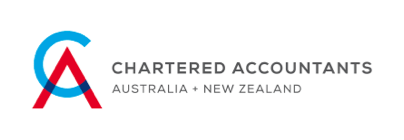The audit process is an important part of maintaining financial integrity and compliance for Australian charities and not-for-profits. But it doesn’t need to be daunting. Audits are a great way to proactively highlight areas for improvement, find potential problems ahead of time, and build greater trust and confidence within your community. Here, the Director of Allen Audit & Advisory, Richard Allen, explains the audit process and offers advice for Australian charities and not-for-profits to manage the process efficiently.
Does my charity or not-for-profit need auditing?
Richard says auditing requirements depend on the size of your charity or not-for-profit. “The Australian Charities and Not-for-profits Commission, or ACNC, registers and regulates Australia’s charities,” says Richard. “In 2022, it lifted charity size thresholds to lessen reporting obligations as part of government efforts to reduce red tape for charities.”
In 2024, small charities, with an annual revenue of less than $500,000, aren’t required to have their financial statements audited. Medium charities, with an annual revenue between $500,000 and $3 million, are required to submit a financial report, which can be reviewed or audited by a qualified person (like a registered company auditor or a member of the CPA, IPA, or CAANZ). While large charities, with an annual revenue above $3 million, must have their financial report audited by a registered company auditor, audit firm, or authorised audit company.
Is it good practice for charities and not-for-profits to get an audit?
Richard points out that charities and not-for-profits may elect to be audited, even if it’s not a regulatory requirement. “Every not-for-profit is guided by its constitution or set of rules, which may stipulate an audit needs to be completed,” he says. “Lots of smaller not-for-profits also like an auditor involved because there is cash flow. The audit process gives a level of accountability, transparency and assurance around how funds are being spent.”
Some charities and not-for-profits engage audit professionals like Richard and the Allen Audit & Advisory team for additional advisory services. “For example, if a charity is new or growing, they may like us to come in and review their processes and make sure everything is up-to-date,” he says. “Or we’ll do bespoke pieces of work for established charities, like beefing up their processes around wages or grant acquittals.”
Who can conduct an audit for charities and not-for-profits?
As outlined by the ACNC requirements, who can conduct an audit depends on the size of the charity or not-for-profit involved. A chartered accountant can conduct audits for smaller charities or incorporated associations. If a registered company wants or requires an audit, it must be completed by a registered company auditor.
Do charities and not-for-profits need a specialised auditor?
Having an auditor who specialises in charities and not-for-profits can be beneficial to the stakeholders involved. Richard and his team look after 300 Australian charities of all shapes and sizes, from small community groups to those with an annual turnover of $20 million.
“Everyone in our team is experienced in charity and not-for-profit audits,” says Richard. “A lot of other firms may not have the deep knowledge required as auditing is a ‘bolt-on’ service they offer, whereas it is our sole focus.
“We are a fully specialised audit firm. All our infrastructure, knowledge and learning are built around it. Plus, our clients get access to every team member, no one is off limits to talk to.”
How can charities and not-for-profits prepare for their audit?
Richard recommends charities and not-for-profits ensure their books and records are up to date ahead of their audit, comparing the process to preparing a month-end Business Activity Statement (BAS).
“Get your receipts lined up, banks reconciled, wages up-to-date and make sure you’re across all your employees,” he says. “Ideally you understand your obligations but if not, come early and have a chat with us so we can connect you with an appropriately trained accountant to get those processes in place.
“We’re used to the fact most charity and not-for-profit workers are volunteers with restricted time for the audit process, so we guide you through every step of the way.”
When do charities and not-for-profits need to be audited?
“It’s an annual process that can happen at any time of the year. There’s no need for registered charities to conduct audits in line with the financial year, as they don’t pay tax,” explains Richard.
“To make it easier, do regular checks throughout the year. Once every quarter or six months, make sure you’ve got everything in the right place—like receipts, bank accounts, and minutes from meetings,” he says.
Richard also recommends larger entities with an annual revenue over a million dollars use accounting software, like Xero or MYOB, while smaller charities and not-for-profits can organise their finances in a simple spreadsheet.
What regulatory requirements should not-for-profits be aware of?
Any registered charities are regulated by the ACNC. “The ACNC is the sole regulator and charities don’t need to worry about reporting to any other bodies. This is part of the red tape reduction for Australian charities, which includes the ACNC sharing information with other government agencies and streamlining reporting.”
The regulation of incorporated associations, like sporting clubs, is state-dependent. In Queensland, it’s the Office of Fair Trading, while in New South Wales, it’s NSW Fair Trading.
What are the key steps in the audit process for Australian charities and not-for-profits?
“The first step is finding and engaging with us. The second step is getting your financial documents ready to bring in. And the third step is answering any queries promptly, to keep it as efficient and cost-effective as possible,” says Richard. “Then, leave the rest to us.”
The audit process timeframe depends on the size and complexity of the charity or not-for-profit. “Some can be done in a few hours, others might take a few weeks,” says Richard. “Being well organised can make a real difference when it comes to an audit timeline.”
We have the audit, what’s next?
Once the audit process is finished, charities and not-for-profits get the financial statement, which they can review, sign, and adopt at the committee level. The statement is presented at the Annual General Meeting, where members can ask questions and—if fit— adopt the financial statements. This statement can then be lodged with the regulator.
In addition to the audit process, Richard and his team offer deeper value to charity and not-for-profit clients. “We include a health check and reasonable advice to help improve clients’ general process. We’ll identify common issues, like if your accounts aren’t reconciled, or the depreciation schedules or leave calculations aren’t correct,” says Richard. “We’re committed to helping volunteering members stay within financial reporting and accounting standards.”
How important are audits for Australian charities and not-for-profits to maintain public trust and donor confidence?
“The primary function of the audit process is to maintain trust and independence,” says Richard. “We are an independent voice coming in and making an assessment of the financial health of the organisation.”
Richard says the secondary function is to help management and the committee. “If there are issues, we help them identify them, so they can get in and fix them. Everyone wants to do the right thing.”
The audit process can be viewed by Australian charities and not-for-profits as an annual opportunity to organise, reflect, and grow. Prepare in advance, communicate openly with your auditors, and use their advice to drive positive change. This will strengthen your organisation and further your goals to make a meaningful impact in your community.
If you’re an Australian charity or not-for-profit organisation seeking specialised audit and advisory services, please call Allen Audit & Advisory on 07 5503 1709 or email info@allenaudit.com.au.








